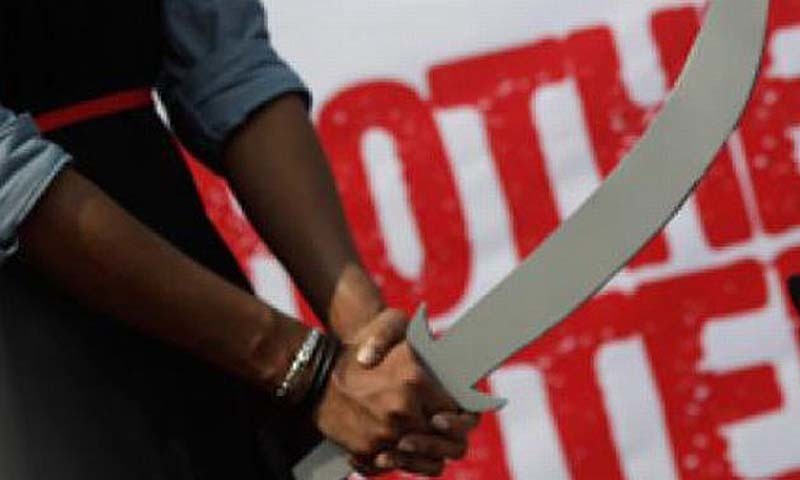RIYADH: Saudi Arabia has beheaded dozens of convicts, including foreign drug traffickers, since the start of the year in what Amnesty International calls an unprecedented pace of executions in the kingdom.
Those put to the sword included five Pakistanis, an Indian, two Jordanians, two Syrians and a Yemeni, with few foreign governments willing to publicly appeal for clemency from the wealthy Gulf state.
Three beheadings in a single day on Tuesday — one for rape and two for murder — took the total so far this year to 38, according to an AFP tally.
That is about three times the number over the same period in 2014, but observers disagree about the reasons.
There was also a surge in the latter months of last year towards the end of King Abdullah’s reign. He died on Jan 23 and was succeeded by King Salman.
“It began before [King] Salman,” a diplomatic source said.
“The Saudi authorities want to show everyone they are strong, people can rely on them to keep the security and the safety in the kingdom,” said the source, who did not want to be further identified.
The aim is to deter all forms of violence but the policy is linked to the kingdom’s fight against the self-styled Islamic State group, the source said.
In September, Saudi Arabia began air strikes against the IS in Syria as part of the US-led coalition, raising concerns about possible retaliation inside the kingdom.
Security officers arrested three Saudis who allegedly acted “in support of” IS when they shot and wounded a Dane in November. Authorities also blamed IS-linked suspects for the killing of seven members of the minority Shia community.
In January three Saudi border guards died in a clash with Saudi “terrorists” trying to sneak in from Iraq.
“They certainly don’t want to seem soft,” Toby Matthiesen, a research fellow in Islamic and Middle Eastern studies at the University of Cambridge, said of the Saudi authorities.
But he did not see a connection with the fight against IS.
“I don’t think it’s going to frighten Daesh” by executing a few more criminals, Matthiesen said, using an Arabic acronym for IS.
London-based Amnesty said there is no evidence the current “alarming spike” in Saudi executions is connected with the battle against IS or “terrorism”.
Allegations of torture
“It would... be a stretch to say that this is an attempt to deter violence,” because almost half of this year’s executions were for drug-related non-violent crimes, Amnesty’s Saudi Arabia researcher Sevag Kechichian told AFP.
“It is impossible to tell what exactly is driving these numbers,” Kechichian said.
Amnesty recorded 11 executions from January 1-26 last year, 17 for that period in 2013, and nine in 2012.
The end-of-year figures turned out to be all about the same, “despite the vast differences in pace and distribution of executions throughout the year,” Kechichian added. “The current rate, however, has been truly unprecedented.”
After 27 executions in 2010, the number jumped to around 80 annually, with 87 last year by AFP’s tally. The figures have been among the world’s highest.
An interior ministry spokesman declined to comment.
In statements carried by the official Saudi Press Agency, the ministry has cited deterrence as a reason for carrying out the punishment. It has also talked of “the physical and social harm” caused by drugs, and said the death penalty for murderers aims “to maintain security and realise justice”.
Rape, murder, apostasy, armed robbery and drug trafficking are all punishable by death under Saudi Arabia’s version of Islamic Sharia law.
Human rights groups have expressed concern about the dangers of the innocent being sentenced to death.
Christof Heyns, the UN special rapporteur on extrajudicial, summary or arbitrary executions, said in September that trials “are by all accounts grossly unfair” and defendants are often not allowed a lawyer.
He said confessions were obtained under torture.
Similar statements have not come from Western governments, Amnesty said, accusing the West of “double standards” towards Saudi Arabia.
Other countries disagree with the kingdom’s use of the death penalty, the diplomatic source said, but he asked if that means they should stop talking with Saudi Arabia about “terrorism”, climate change or economic issues on which they cooperate. “We need to work together,” the source said.—AFP
Published in Dawn, March 5th, 2015
On a mobile phone? Get the Dawn Mobile App: Apple Store | Google Play












































